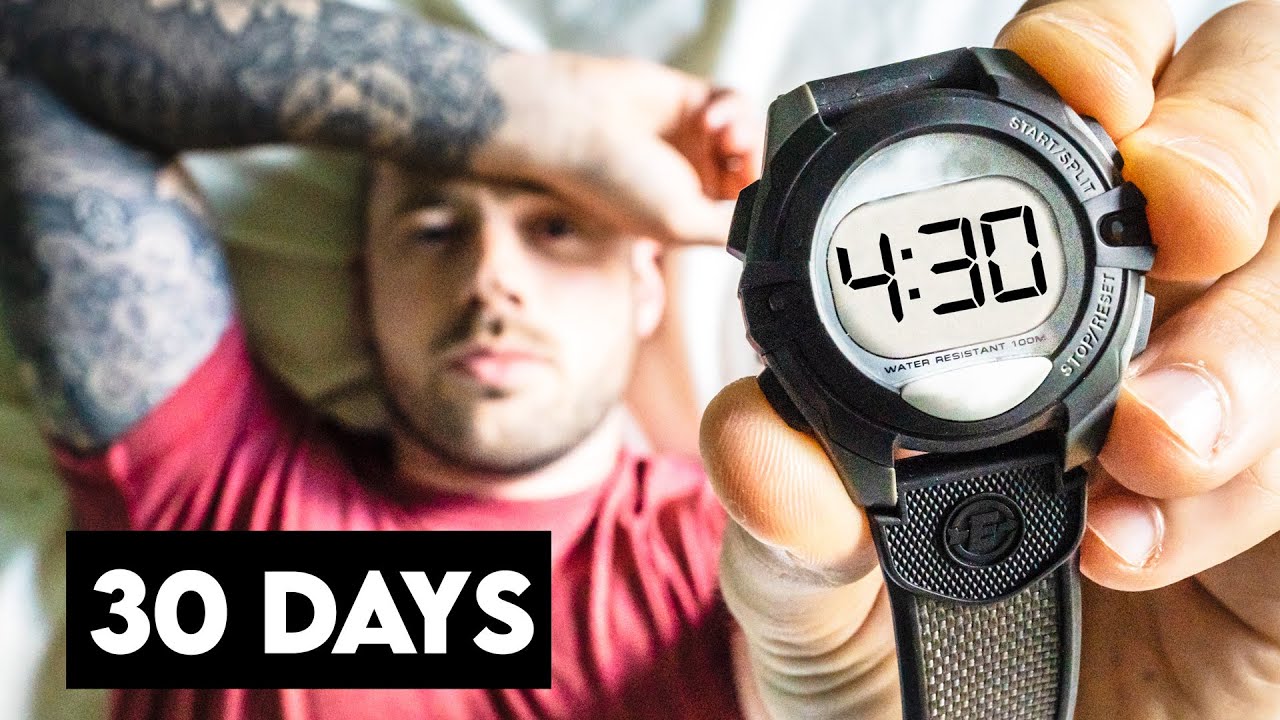How To Stop Wasting Your Life
Summary
TLDRIn a quest to overcome distractions and self-sabotage, the speaker embarks on a 30-day challenge of monk-like discipline, cutting out temptations and committing to a rigorous daily routine. The journey involves intense self-reflection, facing fears, and learning to understand and embrace the various 'parts' of oneself that contribute to personal growth. The experience culminates in the realization that every aspect of oneself, even those perceived as flaws, serves a protective purpose, leading to a deeper sense of self-compassion and understanding.
Takeaways
- 😔 The speaker is struggling with self-discipline and distractions, which are hindering their progress towards personal goals.
- 🛌 The 30-day challenge is initiated to build discipline by cutting out all distractions and committing to a strict daily routine.
- 💸 A unique consequence of the challenge is a $300 donation to a disliked organization if any commitment is broken.
- 🧘 The challenge includes activities like meditation, cold showers, and avoiding social media to enhance focus and self-control.
- 🏋️♂️ Physical fitness is part of the routine, with a goal to work out three times a week and avoid unhealthy meals.
- 📚 The speaker finds more time for productive activities like reading and work due to the elimination of distractions.
- 🤯 The challenge reveals the speaker's internal conflict between discipline and the desire to escape, which is linked to past experiences.
- 🎨 The speaker experiments with self-care and hobbies like painting to find balance and address the need for relaxation.
- 📉 The challenge shows that even with discipline, the speaker still feels unsatisfied, indicating a deeper issue with self-perception.
- 📚 'No Bad Parts' by Dr. Richard Schwartz is recommended as a resource for understanding the inner conflicts and parts of oneself.
- 💬 The key learning is that all parts of oneself serve a purpose and should be acknowledged and understood rather than suppressed.
Q & A
What is the main challenge the speaker undertakes in the video?
-The speaker undertakes a 30-day challenge to build monk-like discipline by cutting out all distractions and following a strict daily routine of 10 commitments.
What is the consequence if the speaker or his friends mess up during the challenge?
-If they mess up, they have to donate three hundred dollars to an organization they dislike, such as the KKK or the German tax authorities.
What is the speaker's initial reaction to the challenge after the first few days?
-The speaker finds the first few days challenging, especially due to a recent breakup, and he feels that the discipline might be another form of distraction.
What does the speaker do to increase the challenge each week?
-The speaker adds a mental toughness challenge each week, such as meditating for five hours straight or doing a thousand push-ups in a day.
What is the speaker's strategy to deal with the temptation of social media?
-The speaker sets up a system where he gives the password to his social media accounts to someone else, preventing him from accessing them until a specific time.
How does the speaker's living situation change during the challenge and how does it affect him?
-The speaker moves in with a friend whose place has a higher living standard, including a downtown apartment, a gym, and a pool area. This change makes things easier for him but also risks making the challenge less difficult.
What does the speaker discover about his relationship with work and escape?
-The speaker realizes that he loves to escape into work, as it is the only thing left that he finds fun and a way to shut off his brain after eliminating other distractions.
What is the book 'No Bad Parts' by Dr. Richard Schwartz about and how does it relate to the speaker's experience?
-The book 'No Bad Parts' explains that we have multiple parts or sub-personalities that serve different purposes, and it helps the speaker understand his self-sabotage and the internal conflict he experiences during the challenge.
What is the final realization the speaker comes to regarding self-discipline and the parts of himself he was trying to suppress?
-The speaker realizes that every part of himself, even those he dislikes, serves a purpose and is there to protect him. He learns to listen to and love these parts rather than suppress them.
What is the speaker's advice to the viewers based on his 30-day discipline challenge?
-The speaker encourages viewers to try the challenge for themselves to gain a deeper understanding of their own internal conflicts and to learn to appreciate all parts of themselves.
Outlines

Этот раздел доступен только подписчикам платных тарифов. Пожалуйста, перейдите на платный тариф для доступа.
Перейти на платный тарифMindmap

Этот раздел доступен только подписчикам платных тарифов. Пожалуйста, перейдите на платный тариф для доступа.
Перейти на платный тарифKeywords

Этот раздел доступен только подписчикам платных тарифов. Пожалуйста, перейдите на платный тариф для доступа.
Перейти на платный тарифHighlights

Этот раздел доступен только подписчикам платных тарифов. Пожалуйста, перейдите на платный тариф для доступа.
Перейти на платный тарифTranscripts

Этот раздел доступен только подписчикам платных тарифов. Пожалуйста, перейдите на платный тариф для доступа.
Перейти на платный тарифПосмотреть больше похожих видео
5.0 / 5 (0 votes)






